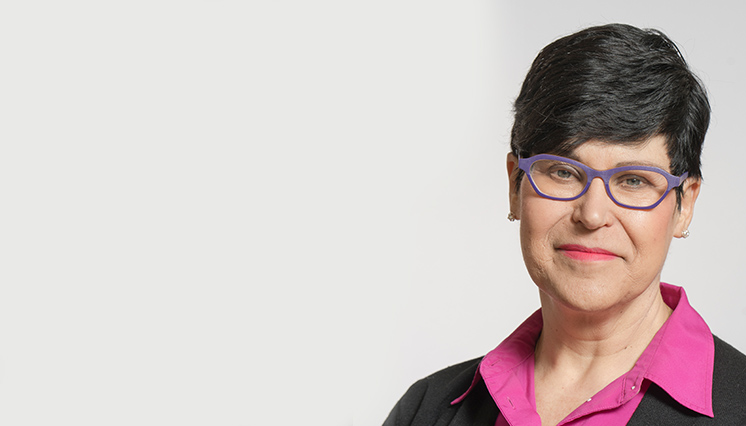The Finnish model delivers results in peace mediation
The Finnish model in peace mediation is in much demand in the volatile global situation. It is in the interests of all Finns that there continues to be political support and funding for this work.

CMI’s Executive Director Tuija Talvitie. Photo: Riku Isohella.
There was embarrassingly scant talk during the recent Finnish parliamentary elections about foreign and security policy. The little that was said was mainly about the future procurement of fighter jets.
And yet the international situation is more fragile than it has been for decades. Hardball great power politics subverts international cooperation, which is the prerequisite for peace. The number of violent conflicts is once more rising, and we can no longer rule out the threat of a major war.
It would also have been intensely important for parliamentary candidates to fully debate how Finland and the Finnish people could best tend to their own security in this exceptionally volatile global situation.
Peace mediation is an effective and inexpensive way to tackle conflicts
The talk about fighter jets indicates how in recent years the Finnish security policy discussion has concentrated on so-called hard security. Preventing and resolving conflicts by the use of diplomatic means has been relegated to the background in this debate. This despite the fact that peace mediation is increasingly recognised as an effective and inexpensive way of tackling conflicts and their root causes. Finland is robustly proficient in peace mediation, for which there is a use in the current world situation.
In peace mediation we can talk with good reason of the ‘Finnish model’. This model is rooted in the close cooperation between the state and civil society organisations. It is largely the latter that do the necessary fieldwork. CMI, the Finnish Evangelical Lutheran Mission, and Finn Church Aid are for instance highly regarded actors, and each of them has its own distinctive profile. The role of the Foreign Ministry is to provide support for the work of NGOs and to make Finnish peace mediation known.
The current turbulent world situation has laid bare the inability of official diplomacy to find solutions to conflicts that are becoming more and more complex. Such conflicts are often taking place within states, emanating from local failings, but they also have regional and international dimensions. They involve a changing set of parties, ranging from the state to various armed groups. Due to the wrangling among the major powers, the international community seems to be paralysed in the face of these conflicts. The difficult and protracted wars in Yemen and Syria are tragic examples of this.
Work for peace unencumbered by political baggage and the glare of publicity
Organisations that operate independently, such as CMI, are able to build peace when official diplomacy is unable to. At best, their work creates the basis for breakthroughs in formal negotiations. CMI’s work is always based on close collaboration with official bodies.
The unofficial character of private diplomacy actors nevertheless provides many opportunities and freedoms. Devoid of political baggage and the glare of publicity, the sides involved in conflicts have the possibility to put themselves in one another’s shoes, build mutual trust, and search for creative and bold solutions. Having greater flexibility than states and international organisations, CMI is able to tailor a model that encourages the parties to take heed of the most effective conflict resolutions.
Independent organizations have the opportunity to bring to the peace tables all groups that have a key role to play in conflict resolution. For example, armed groups are an awkward presence for formal diplomacy, and yet they must be part of the solution to building peace. Independent organizations can also effectively promote the opportunities for women and young people to participate in peace processes. Peace can never be sustainable unless there’s broad participation by society.
CMI’s work in Libya is an edifying example of the possibilities offered by unofficial peace mediation. The UN-led official peace process has not by itself succeeded in stabilising the country. The main problem is that many of the country’s important groups have been left out of the process. CMI’s work, especially with the country’s political parties, has produced results. The parties have moved from animosity to co-operation, sparking the hope that they can become a positive force for change on the road to stability and democracy.
Libya is important for Finland and the Finnish people. The chaotic situation in the country has made it a key route for illegal migration to Europe, and instability in Libya is creating a breeding ground for terrorism.
A reputation for reliability and being results-oriented
Finland and Finnish organizations have a reputation for being reliable and results-oriented when it comes to peace mediation. For many regions afflicted by conflicts, it is particularly importance that Finland is not burdened by having a colonial history.
It’s emergence over the past 100 years, through much hardship but helped by a commitment to equality, into one of the most stable countries in the world lends credibility to Finnish peace building.
Utilising the strengths outlined here provides Finland with the scope to further increase its authority in peace mediation. It is in the interests of all of us as Finns that there continues to be political support and funding for this work.
This article was originally published in Finnish in Vieraskynä section of Uusi Suomi. The article is part of a collaboration started by CMI and Uusi Suomi.